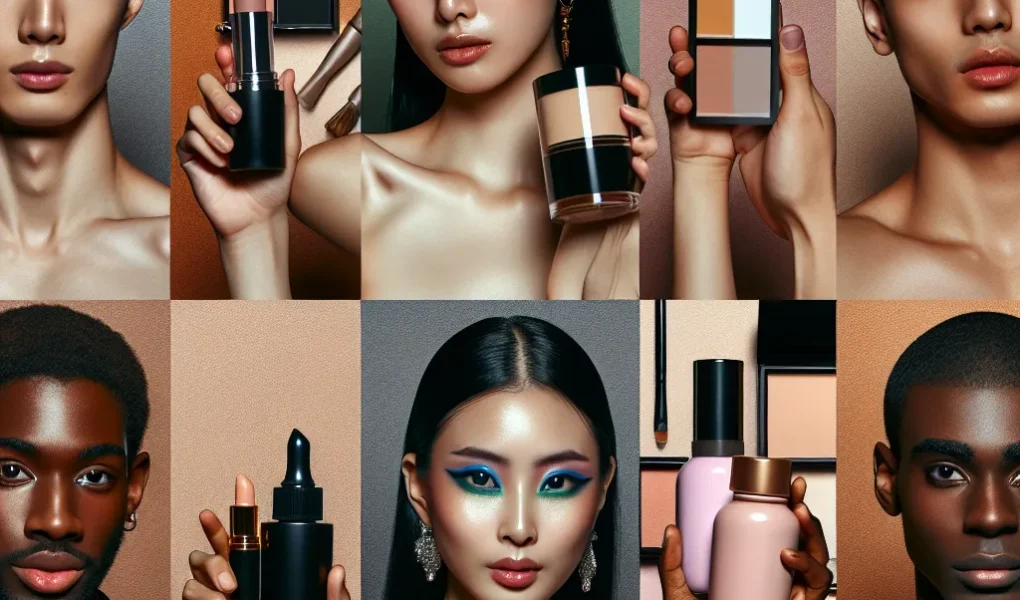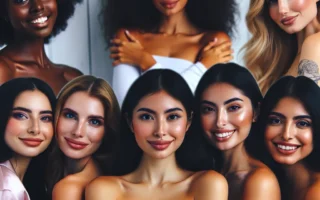Breaking Beauty Industry Norms: Embracing Diversity in Makeup and Skincare
Breaking Beauty Industry Norms: Embracing Diversity in Makeup and Skincare
The beauty industry has often been criticized for promoting a one-size-fits-all standard of beauty, excluding diverse skin tones, features, and identities. However, in recent years, there has been a noticeable shift towards embracing diversity in makeup and skincare. Brands are breaking beauty industry norms by expanding their product lines to cater to a more inclusive range of skin tones, creating products specifically tailored to different skin concerns, and featuring a wider variety of models in their marketing campaigns.
Makeup brands are now offering foundation shades to match a broader spectrum of skin tones, recognizing that beauty comes in many different hues. This embrace of diversity is not only empowering for consumers who have traditionally been underserved by the beauty industry, but also sends a powerful message that beauty is not limited to one particular look or skin type.
In addition, skincare brands are also playing a crucial role in breaking beauty industry norms by developing products that address the unique needs of various skin types, including those of people of color. By creating skincare solutions that cater to a diverse range of skin concerns such as hyperpigmentation, different textures, and specific sensitivities, these brands are acknowledging and celebrating the beauty of individual differences.
Furthermore, the use of diverse models in advertising and marketing campaigns is challenging traditional beauty standards and celebrating the uniqueness of all individuals. By showcasing a variety of skin tones, facial features, and cultural backgrounds, beauty brands are sending a clear message that beauty knows no bounds and that everyone deserves to feel represented and included.
This shift towards embracing diversity in makeup and skincare is not only revolutionizing the beauty industry, but also sending a powerful message of inclusivity and empowerment to consumers. It marks a significant step towards breaking down barriers and creating a more diverse and accepting beauty landscape for all.
Celebrating Inclusivity: Empowering Diversity in Beauty Brands
Breaking barriers and celebrating diversity in the beauty industry has become a pivotal focus in recent years. This shift towards inclusivity has led to a powerful movement within beauty brands, as they strive to empower individuals from all walks of life. Embracing diversity is not only a positive step towards social change, but it also makes smart business sense. Beauty brands that have been successful in this endeavor have tapped into previously overlooked markets and have resonated with a much wider consumer base.
Celebrating inclusivity means more than just offering a wide range of shades for different skin tones. It encompasses embracing individuals of all genders, ages, body types, and abilities. By featuring diverse models in their advertising campaigns, beauty brands can send a powerful message of acceptance and empowerment. In addition, creating products that cater to specific cultural or religious needs also plays a significant role in promoting inclusivity. Brands that actively involve and engage with diverse communities in the development and marketing of their products foster a sense of belonging and representation.
Moreover, empowering diversity in beauty brands goes beyond mere representation. It involves actively collaborating with influencers and experts from various backgrounds to ensure that the products and marketing strategies are respectful, authentic, and truly inclusive. This genuine commitment to diversity not only enriches the beauty industry but also serves as a beacon of positive change in the broader societal landscape.
In conclusion, celebrating inclusivity and empowering diversity in beauty brands not only creates a more welcoming and representative industry but also resonates with consumers who are increasingly seeking authenticity and inclusivity in the products they choose to support.



